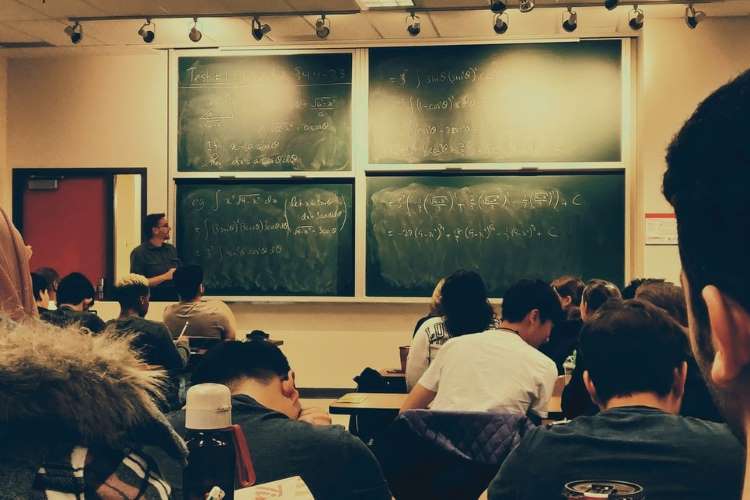
A debate on the viability of online learning is raging in the country. Several commentators have decried the efforts to have online classes at all levels of education, citing the dismal deprivation and digital connectivity numbers across India. There is no denial that a large part of Indian population is not ready for this revolutionary change. However, considering that social distancing will be the norm for several months to come due to Covid-19 pandemic, one need to look at the options left for education institutions and students.
As per the All India Survey of Higher Education, India has entered the era of massification of education. There has been an increase in gross enrolment ratio of the specific age group to 23%. Massive investment is required, but not forthcoming. This is despite the higher education cess collected from 2007. Last year, a CAG report revealed that the Rs 94,036 crore (more than 0.5% of the country’s GDP) collected through secondary and higher education cess is lying unutilised with the Consolidated Fund of India. The report said the amount is yet to be transferred to the Madhyamik and Uchchatar Shikska Kosh, the spending agency.
READ: Govt agencies push online learning, disregard official data
The question we need to address these days is not that of internet penetration or connectivity, but of enhanced accessibility. To expect a student to take to learning within the confines of a small home with barely any space would be cruel. Urban learning clusters based in towns, municipalities and cities can address this need. The government will need only a fraction of the corpus collected through cess to create IT-enabled learning clusters in each of the 6,856 sub-districts in the country.
In the short term, given that the household internet connectivity is at reasonably high levels for the top quintiles in the urban areas, this is a tactical, technically feasible option for striking a balance between expanding the outreach and maintaining physical distance required during the days of the pandemic. With the growing need for test centres for various examinations countrywide in these days of immobility across regions, there are also welfare gains associated with the idea.
READ: Great lockdown: Online classes, remote working widen India’s digital divide
Apart from providing funds to these learning clusters run by the local bodies, the Union government could also provide incentives to private entrepreneurs to set up such centres. Incentives should also be given to students from economically and socially deprived communities.
To complement the online learning efforts, government bodies such as NCERT and UGC could air classes on issues such as basic biology and human body (now everyone is interested in the virus), and climate change on alternative channels like television. The viewership of such programmes could be increased by using film personalities and sport stars as brand ambassadors. High quality quiz shows with lucrative prizes can be added attractions. Policies should be designed in such a manner that there could be credits on the time spent on viewing educational content through mobile telephones. The examination fees paid to NPTEL can be waived for deserving candidates.
There has been very little effort from the part of the state to catch up with the growing demand for higher education. This has resulted in many of them not exercising the option. And, the others are receiving the same at a very high cost.
READ: Coronavirus pandemic exposes India’s online teaching prowess
A policy package based on grants to local bodies, incentives to entrepreneurs and reimbursements / waivers to the socially and economically deprived will drive this initiative. Rather than showcasing India as a low-cost destination, we should put our act together during this crisis towards upscaling skills of the emerging labour force.
Policy makers must take into account the conditions of the most deprived while taking decisions. But high deprivation levels should not prevent them from taking progressive steps. One should remember the violent opposition in 1980s when the government ushered in computerisation. The government of the day showed political will to stand up to the opposition parties. The rest, as they say, is history. India became an information technology powerhouse in a matter of a few years. Now the country is faced with a similar situation. Instead of shying away from the use of technology for the betterment of human lives, the government must find ways to take its benefits to the least privileged of citizens.
(Krishnakumar S teaches economics at Sri Venkateswara College, University of Delhi.)
Krishnakumar S is a New Delhi-based economist. He teaches economics at Sri Venkateswara College, University of Delhi.

